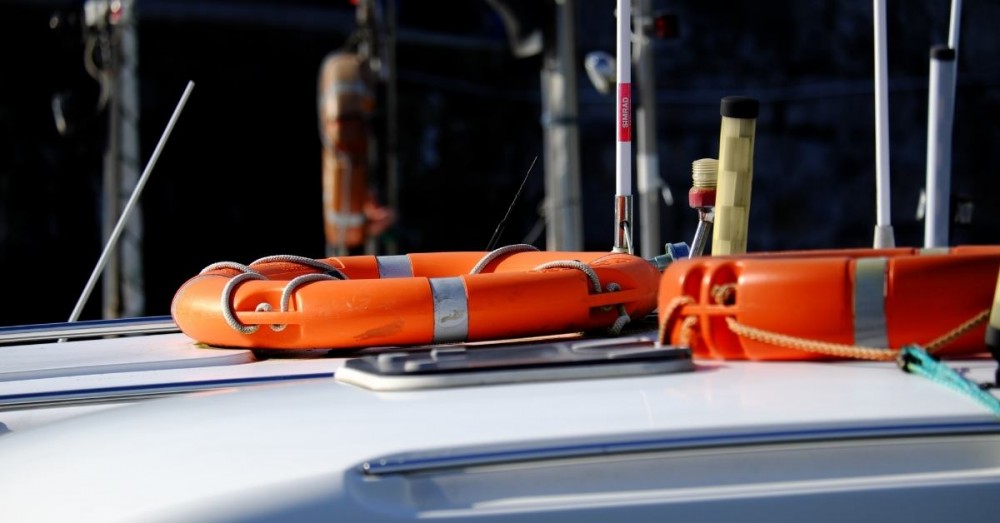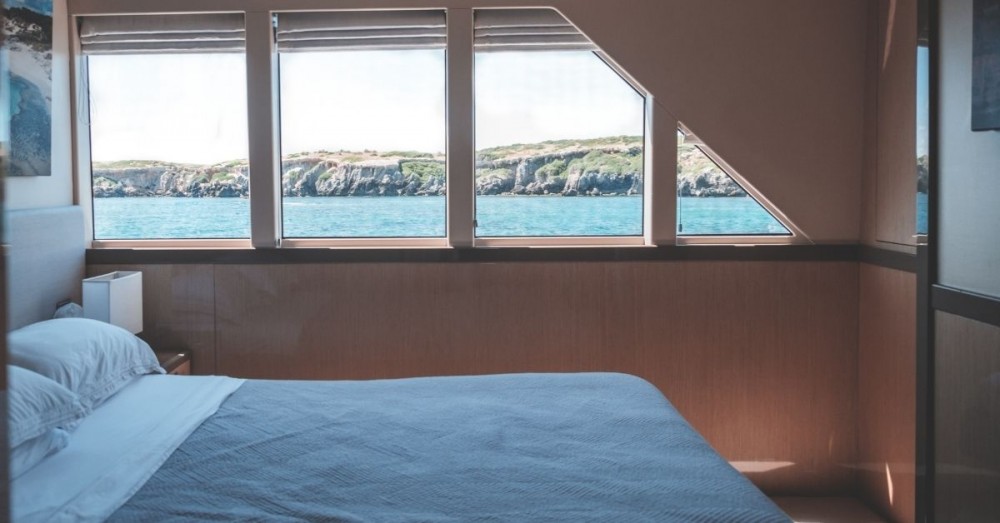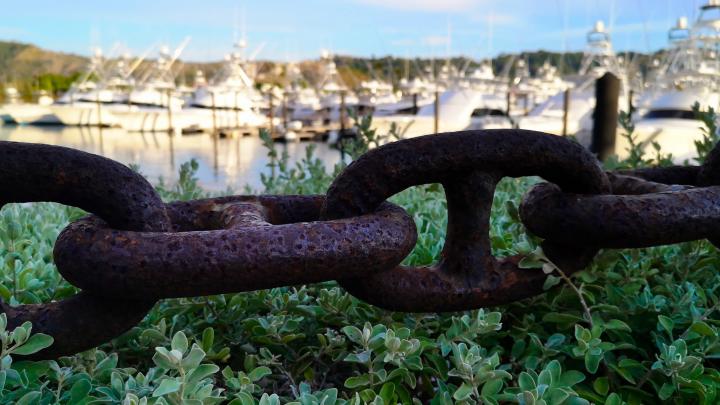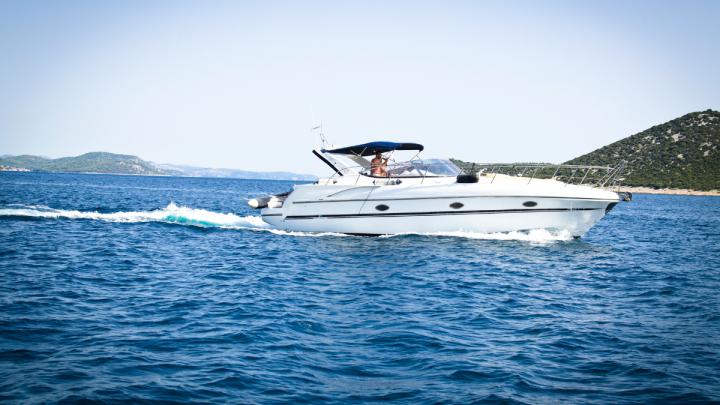What to consider when planning a family boat trip?
Posted May 18 2022 in Boating tips
A family boat trip is a perfect way to get close to nature, spend some quality time together, and explore both freshwater and saltwater environs. But before you set out on a maritime trek with your loved ones, it's a good idea to plan ahead.
We've put together a list of 10 things you might want to consider before going on your first family boating trip:
1. Boat type
The type of boat you choose will depend on your family's size and how much gear you want to bring along. You may not be able to fit everyone in a small boat, but it will be easy to maneuver. If you have a large family, you'll need something that's big enough for everyone and their stuff.
Some boats come with cabins where people can sleep during the day or at night if they get tired from all the fun activities on the water. These boats are great for families because they're comfortable and safe, but they're also expensive and hard to park (smaller trailers are needed).
2. Safety gear

When planning a family boating trip, safety gear is always at the top of your list.
- Life jackets: Each member of your crew should have a life jacket that fits properly and will keep them afloat if they fall overboard.
- First aid kit: The first-aid kit should include bandages and gauze pads for cuts and scrapes, antibiotic ointment for infections, antihistamine for insect bites (and stings!), tweezers and scissors to remove splinters or ticks, antiseptic wipes for cleanliness before bandaging wounds, adhesive tape to close wounds temporarily until medical attention can be sought, an ice pack to reduce swelling from bruises or sprains, an Ace wrap (or other elastic bandages) for stabilization until someone can look at your injury more closely. These items can be purchased at most drugstores—check in advance with your doctor if you need prescriptions filled before leaving home!*
- Emergency flares: These are called "flares" because they really flare brightly when ignited outdoors under normal weather conditions—they won't work well inside where there's too much smoke generated by combustion.
- Radar/GPS devices: These devices allow you to see other vessels around yours on radar, so everyone knows where everyone else is located.
3. Place to sleep

One of the most important considerations is where you will sleep. If you have an idea in mind, it's best to get that out of the way before booking a trip.
The number of beds and where they are located on the boat can affect how much space there is for activities during rest time, as well as how comfortable everyone feels while sleeping. If there aren't enough beds for everyone who is going on your trip, then this may mean having some people sleep in groups or even on floors—not ideal!
It's also worth noting whether or not extra bedding will be provided (such as sheets, pillowcases, and blankets) or if guests need to bring their own.
You should also consider how close together each bed is located so that no one has trouble getting up when someone needs to use the bathroom at night time.
4. Sun protection

Now that summer is in full swing, we want to make sure that you are protected from the sun's harmful rays! There's nothing worse than getting a sunburn when you're out on the water. A little preparation will go a long way to protecting your body and keeping you out of pain this summer.
Sunscreen is probably the most important part of your summer skincare routine. It's easy to forget about protecting your skin when you're having fun on the boat, but if you don't want to spend the rest of your vacation in pain, it's worth taking a few extra minutes to apply some sunscreen before you leave the dock.
You should always wear sunscreen with an SPF rating of at least 30+, and look for water-resistant varieties if possible. If you're planning on being in and out of the water all day long, consider investing in an SPF lip balm so that you don't have to reapply every time you jump back on board!
5. Indoor activities
You don't want to spend all of your time on the water reading a book or playing cards. You'll need some indoor activities to keep everyone busy and content while you're away from home. There are lots of options, but here are our favorites:
- Board games
- Playing cards or dice games
- Trivia and word games
- Books (you might want to bring an extra battery-powered LED light)
- Music (dock-topping speakers work great)
If you have kids who love technology, consider bringing along a DVD player or portable television. Make sure there's enough room for them inside the boat so they won't be distracted from each other. Also, make sure that you have enough space for your laptop computer so that everyone can use it when necessary (and potentially even play video games).
6. Water toys:
Whether you're lounging on your private yacht or in the middle of a crowded public marina, you can't forget those fun extras like snorkel gear, beach balls, and floats for the kids.
You can also bring along an inflatable raft or inner tube to keep everyone entertained while they cool off in the water. And don't forget a way to store all of it! You'll need a boat that offers plenty of storage for all your water toys and personal belongings.
7. Fishing gear
If you're planning a family trip to go fishing, you'll need to make sure you have the right equipment. You'll need fishing rods, and also some baits and nets for catching fish.
The first thing you'll need is a fishing rod. A good rod should be made of fiberglass or graphite, and it should have an aluminum or graphite reel attached to it. The length of the rod should depend on who's going to use it: if it's just adults then a 7-foot rod will be fine; if there are kids involved then a shorter 4-foot rod would be better.
You'll also need some bait. Baits can be anything from worms to dead insects—whatever works best in your region!
Another thing you might want is a net. Nets are useful for catching larger fish like bass or catfish, but they're also helpful when trying to catch smaller ones like trout or perch by hand."
8. Cooking equipment
You're going to be spending a lot of time on the boat, so you'll want to make sure that you have enough food and water. The easiest way to do this is by packing meals in advance, but if your schedule doesn't allow time for that (or if the thought of making multiple trips back and forth from the grocery store makes you feel exhausted), consider bringing portable ovens or stoves instead. If you're planning on cooking your own food, remember that there may be limited space in which to store ingredients.
When it comes down to what kind of food will work best on a boat trip, think about what's easy—and therefore less likely to cause chaos at sea! Don't plan out an elaborate menu; keep things simple by opting for staples like canned goods and boxed dinners over anything too complicated (i.e., baking).
9. Sleeping bags and pillows
Sleeping bags and pillows. If you plan to camp on the boat, make sure everyone has a sleeping bag and pillow. If you're staying in hotels, bring sheets, blankets, and towels. As with most things in this list, it's best to err on the side of caution when buying these items—you don't want to be cold or uncomfortable at night!
Warm enough for the season and destination. You should keep weather conditions in mind when purchasing sleeping bags for your trip. If it's going to be colder than usual where you're heading, opt for an extra warm model; if it's going better than average temperatures wise but still chilly at night (think the 30s), consider getting some kind of liner as well—it'll help keep everyone warm while they're sleeping!
10. Make a boat trip checklist
It can be hard to think of everything you might need for a family boat trip. Here are some things to consider:
- Make a checklist of all the necessary items for your trip. It's best to make it before any last-minute shopping trips or trips to the store so that you aren't caught off guard when the time comes.
- Check the weather forecast and plan accordingly with regards to what kind of clothing and gear your family should bring along on their journey together!
- Tell someone where you are going and when they should expect you back home again, just in case something unexpected happens during your stay at sea! This is especially important if there is no cell phone reception near where we're staying (or if there's something wrong with my iPhone).
Check out the boat beforehand so there aren't any surprises when you go out on your adventure together!
We hope you will enjoy our list of 10 things to consider before going on your first family boat trip! As long as you plan ahead, a family boat trip could be one of the most memorable vacations you've ever had. And. if you wonder where to start - you can browse our boat rentals in Miami and choose the perfect boat for you!
You might also like
 Transporting a Boat to Costa Rica: All You Need to Know
Transporting a Boat to Costa Rica: All You Need to KnowSep 14 2023Boating tips
U.S. Department of State statistics show that tens of thousands of American and Canadian expats and retirees have chosen to move to Costa Rica, and it’s not hard to see why. From the paradise beaches to the sunny weather, there’s a lot to love about this part of the world, and having your own boat there is a great way to make the most of the experience.
read full post Bear Cut Sandbar - A Hidden Gem for Boaters
Bear Cut Sandbar - A Hidden Gem for BoatersFeb 06 2023Boating tips
If you're a boater in search of a hidden paradise, Bear Cut Sandbar is the place for you. This stunningly beautiful location is located just off the coast of Key Biscayne, Florida, and is the perfect destination for boaters looking for a relaxing day in the sun.
read full post How To Keep Miami's Blue Waters While Boating Green
How To Keep Miami's Blue Waters While Boating GreenJan 05 2023Boating tips
As boaters in Miami, we have the privilege of enjoying the beautiful blue waters of the city. However, it is our responsibility to ensure that we are doing our part to keep these waters clean and healthy for all to enjoy.
read full post